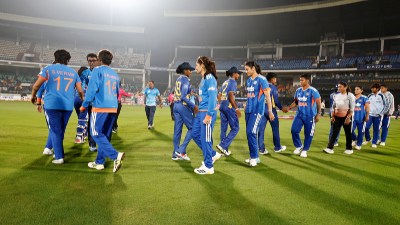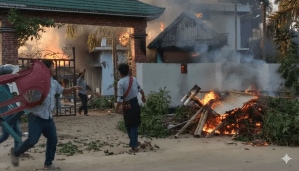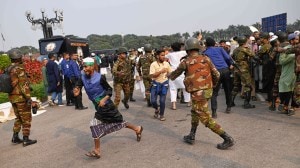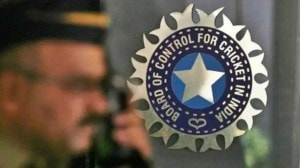As Siddaramaiah contests prosecution sanction against him, how different govts, governors have used it
Former CMs, from Jayalalithaa to Lalu Prasad to Ashok Chavan, were all prosecuted after Governor’s issued sanctions against them; mostly it was under an adversarial regime at the Centre
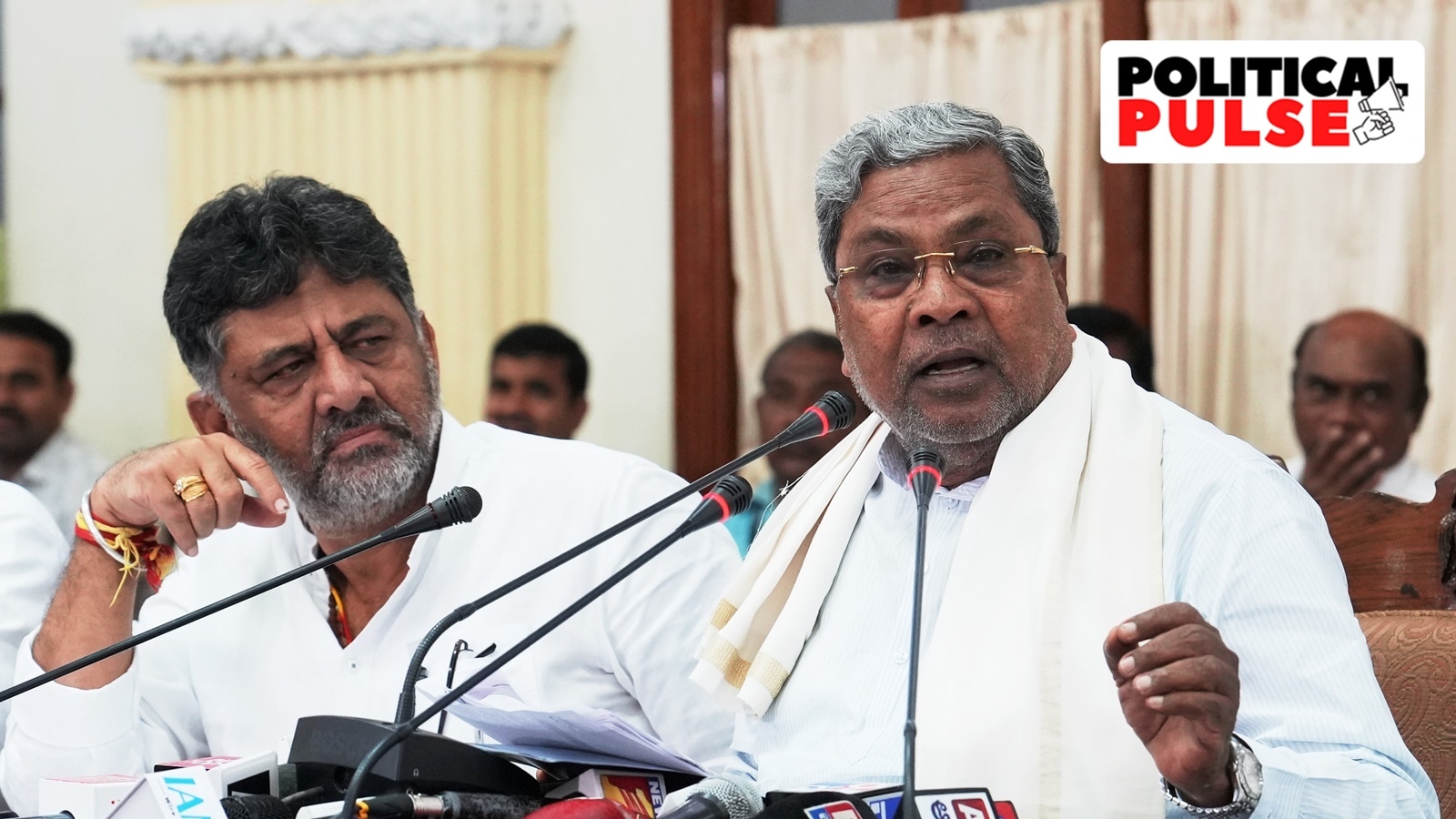 Bengaluru: Karnataka Chief Minister Siddaramaiah addresses a press conference after a cabinet meeting over Governor Thaawarchand Gehlot's decision to grant sanction for prosecution of the CM in the Mysuru Urban Development Authority (MUDA) site allotment 'scam', in Bengaluru, Saturday, Aug. 17, 2024. (PTI Photo)
Bengaluru: Karnataka Chief Minister Siddaramaiah addresses a press conference after a cabinet meeting over Governor Thaawarchand Gehlot's decision to grant sanction for prosecution of the CM in the Mysuru Urban Development Authority (MUDA) site allotment 'scam', in Bengaluru, Saturday, Aug. 17, 2024. (PTI Photo)After Karnataka Governor Thawarchand Gehlot last week sanctioned the prosecution of Chief Minister Siddaramaiah over alleged irregularities in the allotment of land under the Mysore Urban Development Authority (MUDA), the Congress claimed that the BJP-led government at the Centre was targeting Opposition leaders through the Governor, citing “inaction” in cases against former CMs H D Kumaraswamy and B S Yediyurappa.
Last month, anti-corruption activists had approached Gehlot seeking sanction to file court complaints against the CM in the MUDA case. The Karnataka High Court on Monday granted interim relief to Siddaramaiah and adjourned the next hearing to August 29.
In his official communication, Gehlot had cited Section 17 of the Prevent of Corruption Act, 1988, which allows the Governor to sanction an investigation into the CM. But according to Section 19 of the Act, a separate sanction is required for prosecution if an investigation leads to a chargesheet. The Governor also cited Section 218 of the Bharatiya Nagarik Suraksha Sanhita (BNSS), 2023, which authorises courts to directly take cognisance of the alleged offences without ordering an investigation. However, for the courts to take action in this case, the Governor has to grant sanction under Section 19, which the complainants in the case against Siddaramaiah had initially sought.
However, Siddaramaiah and the Congress have described the Governor’s move as “hasty” and claimed the sanction wasn’t valid without an independent investigation. “When there were serious cases against other leaders, the Governor did not grant prosecution. In my case, the sanction was granted even before a preliminary investigation,” Siddaramaiah said, referring to the pending requests for the prosecution of Kumaraswamy, a senior Janata Dal (Secular) leader who is now the Union minister of Steel and Heavy Industries, and the rejected sanction in a 2015 case involving Yediyurappa.
Not the first ‘sanction’ tussle in Karnataka
In November 2023, the Karnataka Lokayukta had sought sanction to prosecute Kumaraswamy over alleged illegal mining during his tenure as CM in 2006. A Special Investigation Team was formed based on the Lokayukta reports of 2013 and 2017. But the demand for sanction to take action against Kumaraswamy and three others who served as ministers in BJP governments over corruption allegations remains pending. While one case was later quashed by the Karnataka High Court, the Supreme Court-ordered investigation in the other is still ongoing.
Yediyurappa, too, was accused in land- and mining-related scams in 2011 after Lokayukta investigations. He was later forced to resign as CM, and convicted and jailed. However, in 2015, the Karnataka High Court overturned then Governor H R Bhardwaj’s prosecution sanction against Yediyurappa, under a Congress government in the state, on the grounds that “relevant consideration” of the complaint was not done by the Governor.
The 2004 precedent cited by Gehlot
In giving sanction to prosecute Siddaramaiah, Gehlot cited a 2004 Supreme Court ruling in the Madhya Pradesh Special Police vs State of Madhya Pradesh case, involving two state ministers accused of land irregularities, based on a complaint made to the Lokayukta. While the Council of Ministers at the time held that there was not enough evidence in the Lokayukta’s report, the Governor disagreed and granted prosecution sanction. At the time, the BJP was in power at the Centre and in the state.
A five-judge Constitution Bench of the Supreme Court later upheld the Governor’s move, even though it went against the state government’s view, saying that “if the Governor cannot act in his own discretion, there would be a complete breakdown of the rule of law inasmuch as it would then be open for governments to refuse sanction in spite of overwhelming material showing that a prima-facie case is made out”. The Bench added that in such cases, a refusal to grant sanction could put “democracy itself at stake” and lead to those in power “(breaking) the law with impunity”.
Past sanctions against CMs
The first sanction to prosecute a sitting CM came in 1995, when Tamil Nadu Governor Marri Channa Reddy approved the prosecution of Tamil Nadu CM Jayalalithaa on corruption charges. The AIADMK chief challenged the sanction, claiming it was incorrectly granted based on the Governor’s discretion and not on the advice of the Council of Ministers. After the Madras High Court upheld Reddy’s decision, the issue went to a Constitution Bench of the Supreme Court. However, Jayalalithaa later withdrew her challenge before the Supreme Court following her acquittal in the corruption cases.
Former Bihar CM Lalu Prasad was also the subject of such a sanction in 1997 over the fodder scam case. A year after the scandal broke out, Governor A R Kidwai granted sanction to prosecute the RJD chief following a request from the CBI, after delaying a decision for more than two months citing inadequate evidence. The prosecution sanction forced Lalu to resign as the CM in 1997, and he did so after handing over the reins of his party and government to his wife Rabri Devi. Lalu was convicted and jailed in the case in 2013, before being released on bail in 2021.
In 2010, former Maharashtra CM Ashok Chavan was named in the Adarsh Society scam, which involved politicians cornering flats built for war widows. The scandal forced Chavan to resign as CM, and implicated other ministers and bureaucrats. At the time several requests for prosecution sanctions were denied by the then Governors – the Congress was in power in both the state and Centre. In 2016, with a BJP-Shiv Sena government in power in the state and Centre, C V Rao granted sanction to the CBI. However, a year later, the Bombay High Court struck down Rao’s sanction on the grounds that the CBI had failed to provide any fresh evidence when it had sought the sanction. The Adarsh Society case is still being heard in courts.
Most recently, former Delhi Deputy CM Manish Sisodia faced prosecution sanction in the alleged “Feedback Unit” snooping case in 2023. In a communication to Lieutenant Governor V K Saxena, the Union Ministry of Home Affairs issued the CBI sanction to prosecute Sisodia under the Prevention of Corruption Act. At the time, Sisodia criticised the decision as the Lt Governor’s “overreach”, saying the sanction “bypassed” the elected government.
In recent years, several ministers and MLAs have also been the subjects of prosecution sanction from the Governor – from Tamil Nadu, where the ruling DMK and Governor R N Ravi have faced off over pending sanction demands against former AIADMK ministers in 2023, to West Bengal, where former Governor Jagdeep Dhankhar granted sanctions against three ministers of the ruling Trinamool Congress in the Narada sting case in 2021.
- 01
- 02
- 03
- 04
- 05


